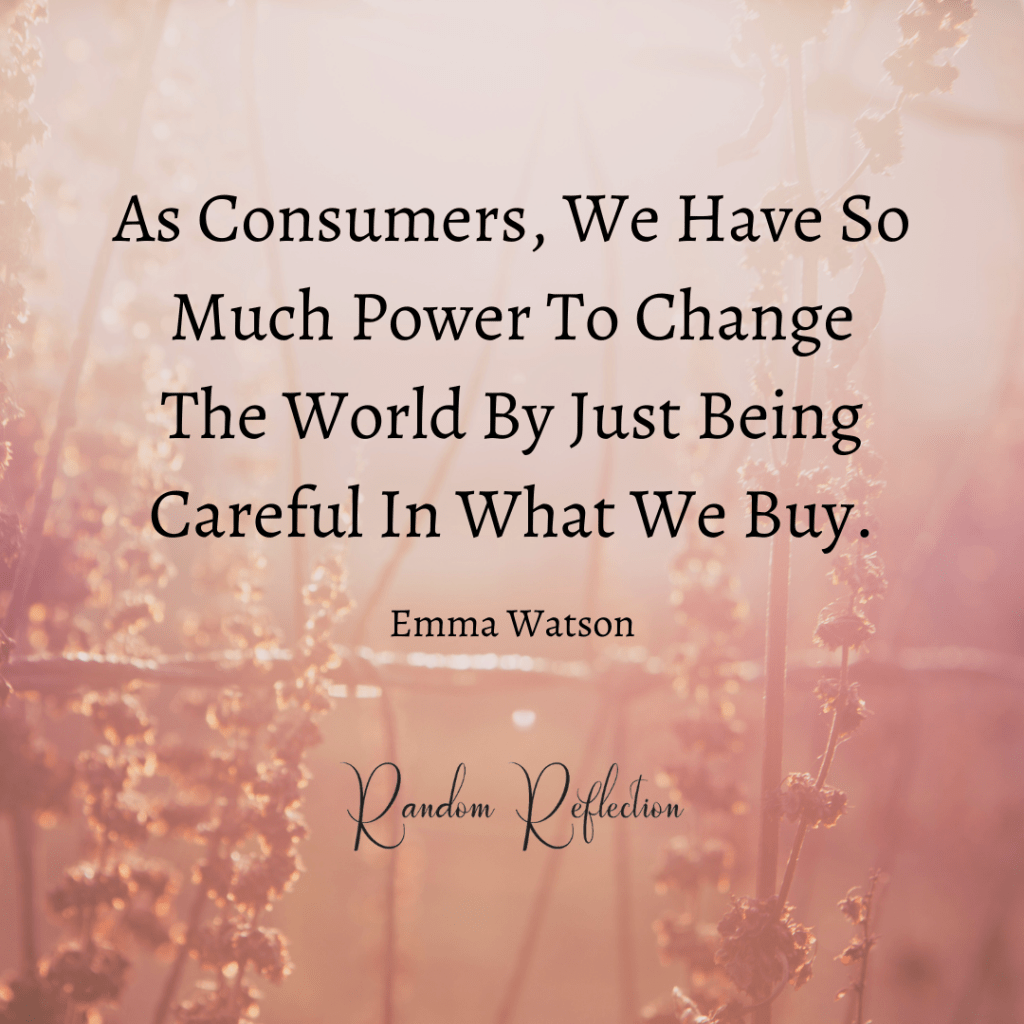I’ve never considered myself a shopper; I shop out of necessity. I usually know what I want and get frustrated when I can’t find what I want. The one exception is when on vacation. Relaxed, in new places I enjoy wandering local streets and discovering things, in new fun shops. That is until 2020, Pandemic Life.
Being required to pivot and change the way we shopped due to Covid opened up an entirely new approach to shopping. After the initial frustration with limited access and emptied shelves, shopping became a new kind of adventure. It moved from being something I needed to do to something I could do to make a difference. I began to learn and better understand the value in my purchasing power and how my shopping choices have a greater impact. Just that simple change in mindset was all it took to change my perspective about shopping.
It started with shopping locally. With Covid restrictions impacting so many local businesses, it made us think twice about the importance of shopping locally. Yes, it can be easy and convenient to buy online, but if I want my community to thrive, it means keeping my dollars in the community wherever I can. We are blessed to live in a community that makes buying local easy and fun. Many quickly adjusted to a new way of doing business, and most of our local businesses made it easy and fun to shop with them, from curbside pick-up to personalized support, helping you find what you need.
And then guess what else I learned? Shopping local small businesses not only keeps your dollars in your community, but it also lessens the demand for labor trafficking, and it’s good for the environment—win-win on multiple accounts. To make it even better, I have found that shopping locally builds a stronger community on a personal level. Shopping local means getting to know the people you are purchasing from, and as a non-shopper having someone help you make decisions when buying gifts or new products.
Beyond buying local, I have also been learning about the power of buying less and demanding more. I saw the phrase ‘buy less, demand more’ on Patagonia’s Website, and decided to adopt that phrase. Earlier in January, I wrote about a perspective of no more, no less, mostly focused on the items in our home. (You can link to that article here if you missed it https://randomreflection.com/a-perspective-of-no-more-no-less/) This mindset is something I am only beginning to implement in our home. Considering shopping to have a more significant impact beyond our own home, there is a need for research and education. Let’s start by defining some terms like ethical companies, fairtrade companies, and socially responsible companies.
A truly ethical company will be one that is not causing damage to the environment, exploiting its workforce by paying low wages, using child labor, or producing harmful or dangerous products.
An example of ethical companies would be Patagonia, Grove, Birkenstock, among others. You can do a google search to find out if your favorite shopping spots are considered ethical companies.
Fairtrade is when producers in developing countries are paid a fair price for their work by companies in developed countries when the price we pay for products gives producers enough to afford life’s essentials – like food, education, and healthcare.
An example of some Fairtrade companies would be Noonday and Mercy House Global.
A socially responsible business is a for-profit venture that seeks to leverage business for a more just and sustainable world. … In doing so, the companies engage in voluntary initiatives to improve in various areas ranging from the social to environmental aspects of the society.
A few socially responsible companies are Bombas, Toms, and Sela Jewelry.
Now that we know some of the terms let’s face the elephant in the room. It can cost more to purchase in a way that has a significant impact. Many of us have been hard-wired to shop for the best deal, the best price, and get the most for our money. And aside from that, especially in these Pandemic times, many of us are working with fewer resources, financial instability, and some serious concerns. There is a truth to the fact that we can’t all buy ethical, fairtrade, socially responsible, all the time. But we also don’t have to assume shopping ethically is limited to the amount of money we do or do not have.
It can be as simple as a change in perspective. Shopping in a way that has a greater impact isn’t about spending more money; it’s also about buying less. It is a matter of deciding how we use what money we have. Hence, the mindset of buying less and demanding more. I might choose to have one pair of more expensive fair trade jeans or buy from thrift stores to reduce environmental impact. It’s not about how much money I have; it’s about being intentional in spending to work within our family budget.
There are so many amazing companies out there that are doing great things. I wish I had a ready-made list of all the amazing places, but I am still learning myself, and when it comes to shopping locally, my local is likely different from your local.
Wherever you are in this process of shopping to make an impact, whatever resources you have, the key is not to try to make significant changes all at once. Don’t let the idea of shopping for a greater impact overwhelm you. If you aren’t already shopping this way, see it as a long slow journey that happens over time. Start small by deciding you want your spending to impact the world for the better. If you eat out or order carry-out these days, consider ordering from local restaurants. Instead of going to Target on autopilot, if you need gifts, think about a local business you can support.
Crazy idea since we are talking about shopping. The best place to start when it comes to shopping for clothing or household items is not shopping for a while. Look at what you have, decide what you actually need, what you use, and then as you do shop, consider if there is an option to buy ethical, fairtrade, or from socially responsible companies.
As a non-shopper, changing my perspective to shopping as a way to make a difference, not just as a way to get things I need or just want, has been so fun. And for the most part, I don’t even have to leave the house. I can shop from the convenience of my home, support great causes, and know I’m making my money work beyond the purchase of an item.






